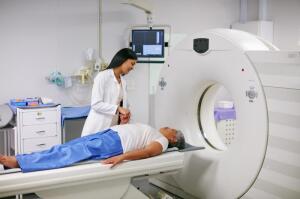by
Lauren Dubinsky, Senior Reporter | October 04, 2017

The devices don't have to
be MR-conditional
The medical community warns against conducting MR exams on patients with pacemakers or defibrillators, but a new study found that it's actually not dangerous.
This research published in the
Journal of Clinical Electrophysiology confirmed that it's safe to use MR to evaluate the heart or lungs in patients with these implantable devices.
A research team at Intermountain Medical Center Heart Institute studied 212 MR studies from 178 patients with a cardiac implantable device, that took place between February 2014 and August 2016. They found that not a single study required remediation.



Ad Statistics
Times Displayed: 120730
Times Visited: 6941 MIT labs, experts in Multi-Vendor component level repair of: MRI Coils, RF amplifiers, Gradient Amplifiers Contrast Media Injectors. System repairs, sub-assembly repairs, component level repairs, refurbish/calibrate. info@mitlabsusa.com/+1 (305) 470-8013
"That's a pretty big number of leads exposed to these very strong MRI fields. You would think if there were even a one percent chance of having a problem, it would have shown up," Dr. Jeffrey L. Anderson, senior study author and cardiologist at the institute, said in a statement. "Not even one generator or lead needed more than a minor adjustment, if any at all."
In recent years, manufacturers have developed MR-conditional cardiac implantable electronic devices, but the majority of patients still have the standard devices. Even if MR is considered the most ideal diagnostic tool for the patient, MR usually isn't used on these patients.
However, that began to change this year when findings from the MagnaSafe Registry study were published in the
New England Journal of Medicine. It showed that non-condition devices can be safely imaged by MR if proper precautions are taken.
But that study was limited, in that it evaluated the safety of the MR exams only in parts of the body that were not in direct proximity to the devices. Intermountain's new study validated those findings and also expanded the group of patients to include those who require lung, heart and chest exams.

